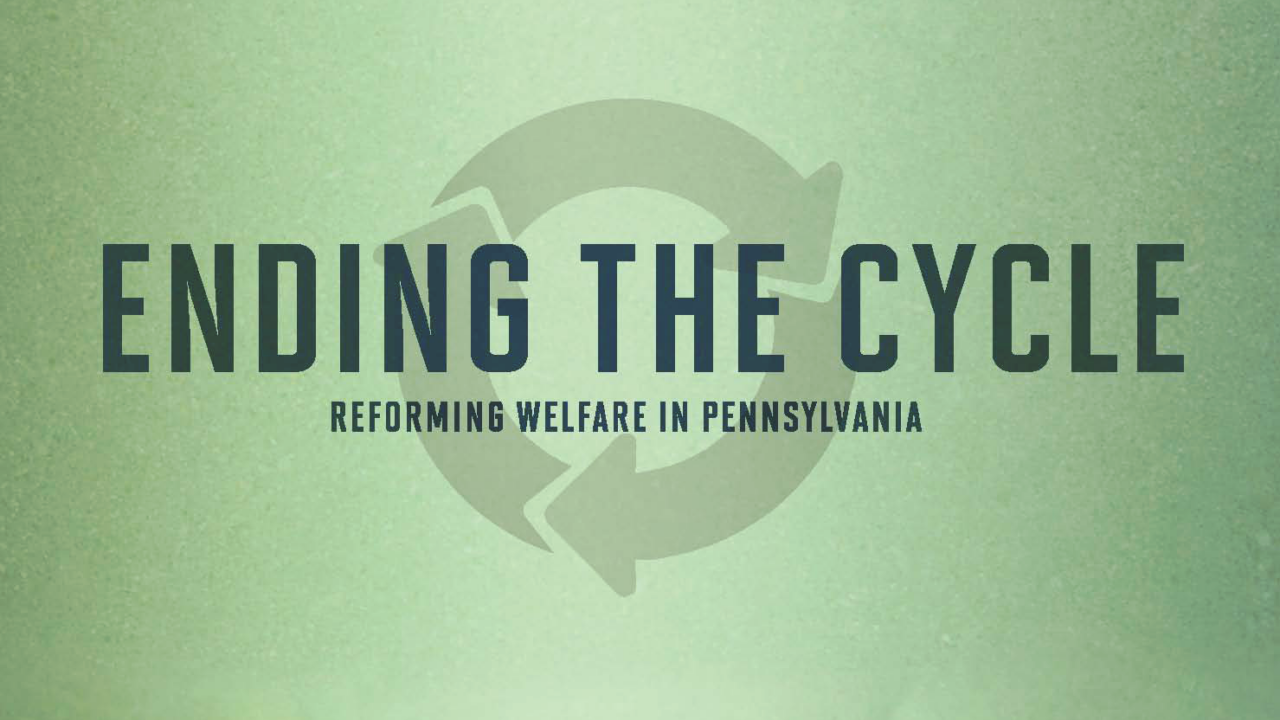Report

Ending the Cycle: Reforming Welfare in Pennsylvania
Executive Summary
Government welfare, with its goal to provide a helping hand to those in need, has instead become a vast series of programs that fall far short of the good intentions behind them. Welfare spending in the Keystone State consumes a growing share of the state budget, and is projected to crowd out spending on other government programs in the near future. In addition to being costly, too many welfare programs frequently provide low-quality care to recipients. The result is that Pennsylvania's welfare system promotes greater dependence on government – instead of independence and personal responsibility – resulting in higher, rather than reduced poverty. This doesn't have to be the case.
Since fiscal year 2002-03, Pennsylvania total Public Welfare spending, including federal funds, rose 52% – when inflation was just 25%. Today, the Department of Public Welfare represents almost 40% of Pennsylvania's General Fund budget. This year, welfare exceeds education as the largest department in the state General Fund for the first time in the history of the Commonwealth. More importantly, increases in welfare spending outpace personal income and state tax revenue growth. In other words, welfare spending is growing faster than our economy. Medicaid alone consumes 31% of Pennsylvania's total operating budget, higher than every other state in the nation but one.
Such rates of spending – even on worthwhile poverty-reduction programs – are fiscally unsustainable. Worse, dramatic increases in welfare spending have failed to free Pennsylvanians from a poverty rate that has been climbing since 2000. Helping more Pennsylvanians escape poverty will require a complete restructuring of the current system, an overhaul that begins with the federal government but can be driven by the states demanding reform.
The majority of welfare programs, and subsequent funding, originate with the federal government, leaving states little room for innovation. The current federal funding system actually encourages states to spend more in order to draw down additional federal funds. Pennsylvania needs greater independence from the federal government to implement customized programs based on what works for Pennsylvanians.
Pennsylvania lawmakers must take on the task of overhauling the welfare system to ensure more efficient spending of tax dollars and to promote the economic independence of those now trapped in poverty. This will require systemic modifications, including:
- Utilizing performance-based budgeting to expand programs that work and end programs that don't.
- Aggressively identifying and cutting waste and abuse by enforcing eligibility standards.
- Restructuring Medicaid as a voucher system where patients are given more control over their healthcare.
- Closing the eligibility loopholes in long-term care to encourage the purchase of private long-term care insurance and prevent wealthy seniors from receiving government-paid nursing care.
- Establishing time limits on benefits and enhance work requirements to keep the safety net from becoming a permanent welfare hammock.
Gov. Tom Corbett and state lawmakers must rethink how the state provides for the truly needy. This entails difficult decisions about eligibility, benefits, and delivery. If no action is taken, welfare spending will continue to crowd out other departments like education and transportation, depriving the truly needy from proper care and leading to future tax increases.